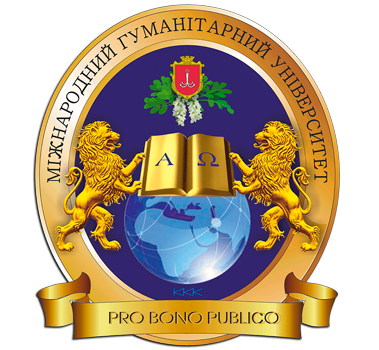HYPOPHOSPHATEMIA AS A COMPLICATION OF THE PERIOPERATIVE PERIOD: CLINICAL PHYSIOLOGY, DIAGNOSIS AND CORRECTION
DOI:
https://doi.org/10.32782/2411-9164.19.1-4Keywords:
perioperative period, complications, hypophosphatemia, clinical physiology, diagnosis, correctionAbstract
Hypophosphatemia (HPE) is one of the frequent electrolyte disorders, for the development of which there are many reasons in the perioperative period. The Medline database was analyzed to identify articles containing hypophosphatemia as one of the keywords in the last 20 years. Clinical and experimental studies, reviews, and clinical case reports were included in the search, provided they had an English-language abstract. This search has received 1684 publications. Based on the studied articles, information on the clinical physiology of phosphates, the effect of HPE on the course of the perioperative period was summarized. The authors present their own experience of diagnosing and treating HPE. In total, determination of phosphate levels was carried out in 328 patients who underwent surgery in operating rooms of various surgical profiles. The highest frequency of HPE was observed in burn patients (23.08%), after neurosurgical (17.94%) and abdominal (17.64%) surgical interventions. It has been established that the correction of severe HPE is expedient to be carried out by intravenous administration of sodium D-fructose-1.6-diphosphate. After the intravenous correction, the level of phosphatemia stabilized to reference values, which coincided with the clinical improvement of the patients’ condition.
References
Zaydfudim V.M. Postoperative complications after major abdominal operations. Surgery. 2021 May; 169(5): 1017. DOI: 10.1016/j.surg.2020.10.006.
Галушко О.А., Бабак С.І., Болюк М.В. Приховані небезпеки періопераційного періоду: фокус на гіпофосфатемії. Медицина невідкладних станів. 2018, № 5(92): 41–48.
Gaasbeek A., Meinders A.E. Hypophosphatemia: an update on its etiology and treatment. Am J Med. 2005 Oct.;118(10): 1094–101.
Tebben PJ. Hypophosphatemia: A Practical Guide to Evaluation and Management. Endocr Pract. 2022 Oct.; 28(10): 1091–1099. DOI: 10.1016/j.eprac.2022.07.005.
Pagel J.I., Hulde N., Kammerer T., et al. The impact of phosphate-balanced crystalloid infusion on acid-base homeostasis (PALANCE study): study protocol for a randomized controlled trial. Trials. 2017 Jul. 10; 18(1): 313. DOI: 10.1186/s13063-017-2051-z.
Marcucci G., Brandi M.L. Congenital Conditions of Hypophosphatemia Expressed in Adults. Calcif Tissue Int. 2021 Jan.; 108(1): 91–103. DOI: 10.1007/s00223-020-00695-2.
Amanzadeh J., Reilly R.F. Jr. Hypophosphatemia: an evidence-based approach to its clinical consequences and management. Nat Clin Pract Nephrol. 2006; 2: 136–148.
Morimoto Y., Ishiguro T., Uozumi R., Takano K., Kobayashi Y., Kobayashi Y., Shimizu Y., Takayanagi N. Significance of Hypophosphatemia in Patients with Pneumonia. Intern Med. 2022; 61(7): 979-988. DOI: 10.2169/internalmedicine.6949-20.
Runde J., Sentongo T. Refeeding Syndrome. Pediatr Ann. 2019 Nov. 1; 48(11): e448–e454. DOI: 10.3928/19382359-20191017-02.
Megapanou E., Florentin M., Milionis H., Elisaf M., Liamis G. Drug-Induced Hypophosphatemia: Current Insights. Drug Saf. 2020 Mar.; 43(3): 197–210. DOI: 10.1007/s40264-019-00888-1.
George R., Shiu M.H. Hypophosphatemia after major hepatic resection. Surgery. 1992; 111(3): 281–286.
Malcolm Squires M.H. 3rd, Dann G.C., Lad N.L., et al. Hypophosphataemia after major hepatectomy and the risk of post-operative hepatic insufficiency and mortality: an analysis of 719 patients. HPB (Oxford). 2014 Oct.; 16(10): 884–91. DOI: 10.1111/hpb.12276.
Warner S.G., Jutric Z., Nisimova L., et al. Early recovery pathway for hepatectomy: data-driven liver resection care and recovery. Hepatobiliary Surg Nutr. 2017; 6: 297–311.
Esther Garazi, Suzanne Bridge, Anthony Caffarelli, et al. Acute Cellular Insulin Resistance and Hyperglycemia Associated with Hypophosphatemia After Cardiac Surgery. A&A Case Reports. 2015; 4: 22–25.
Zoller H., Schaefer B., Glodny B. Iron-induced hypophosphatemia: an emerging complication. Curr Opin Nephrol Hypertens 2017, 26: 266–275. DOI: 10.1097/MNH.0000000000000329.
Vangala C., Pan J., Cotton R.T., Ramanathan V. Mineral and bone disorders after kidney transplantation. Front. Med. 2018, 5: 211. DOI: 10.3389/fmed.2018.00211.
Uetz M.J., Knapp C.D., Ives S.T. Hypophosphatemia in a patient with an eating disorder. Cleve Clin J Med. 2022 Nov. 1; 89(11): 625–629. DOI: 10.3949/ccjm.89a.21074.
Bex S., Mollard F., Stirnemann J. Que faire de l’hypophosphatémie? Diagnosis and treatment of hypophosphatemia. Rev Med Suisse. 2019 Oct. 16; 15(667): 1871–1875. French. PMID: 31617975.
Shah S.K., Shah L., Bhattarai S., Giri M. Rhabdomyolysis Due to Severe Hypophosphatemia in Diabetic Ketoacidosis. JNMA J Nepal Med Assoc. 2015. No. 53: 137–140.
Cohen J., Kogan A., Sahar G., Lev S., Vidne B., Singer P. Hypophosphatemia following open heart surgery: incidence and consequences. Eur J Cardiothorac Surg. 2004; 26: 306–310.






